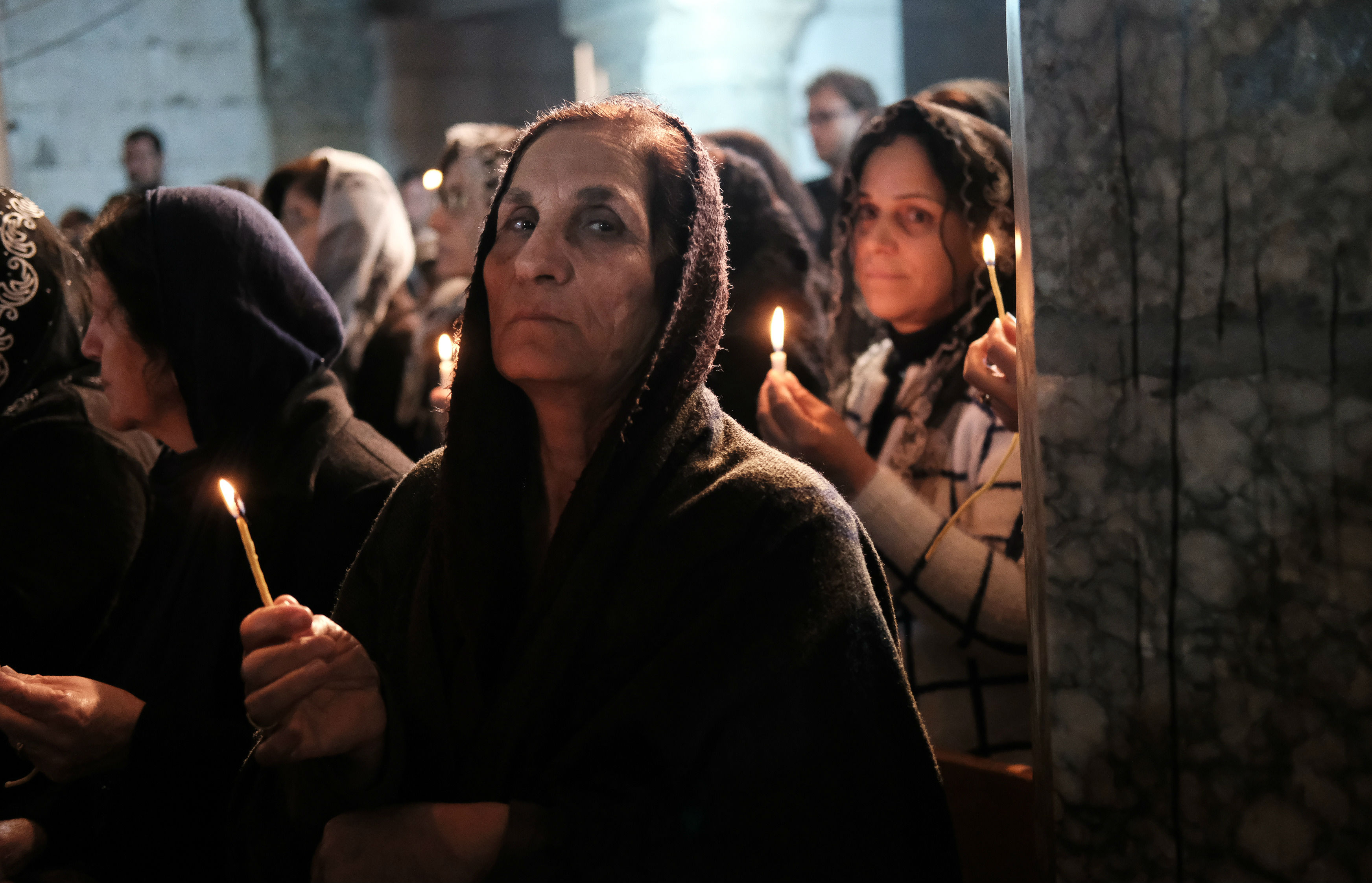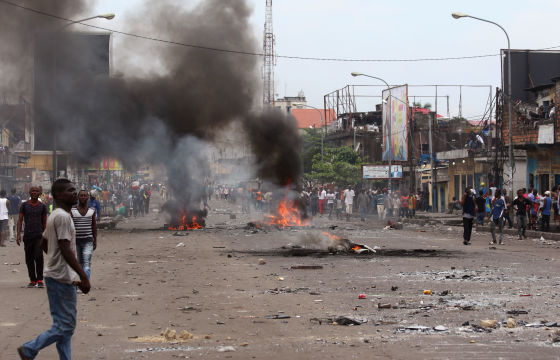The Democratic Republic of Congo’s bishops’ conference has withdrawn from its role as mediator in peace talks between the government and opposition after the implementation of a deal that would ensure elections are held this year stalled.
"The lack of sincere political will and the inability of political and social actors to find a compromise has prevented an agreement from being reached,” said Mgr Marcel Utembi Tapa, Archbishop of Kisangani and President of the Episcopal Conference of the Democratic Republic of Congo (CENCO), on announcing the withdrawal of the Bishops’ mediation today (28 March).
"This lack of sincere political will did not allow for an agreement," Mgr Marcel Utembi Tapa, Archbishop of Kisangani and President of the Episcopal Conference of the Democratic Republic of Congo (CENCO), said on announcing the withdrawal of the Bishops’ mediation on 28 March.
"We are therefore bringing the political impasse in these discussions to national and international attention - as well as the lack of political goodwill and the incapacity of the political and social actors to find a compromise," he added.
Describing the church-brokered peace accord as "in a state of failure", Mgr Tapa said that CENCO cannot "endlessly" mediate and stressed that it is the responsibility of President Joseph Kabila to find ways to "quickly implement" the terms of the deal, which states that a transitional government charged with ensuring a presidential election within the year must be put in place.
Negotiations for the implementation of the deal are reported to have stalled over differences in opinion over how to choose an interim leader for the transition government, who – according to the terms of the agreement - must belong to the opposition. The differences divide not only the government but also the opposition, which is divided internally.
Isolated unrest broke out in Kinshasha, the country’s capital, following the announcement that the bishops’ were withdrawing from their role in the talks.
Demonstrators, some burning tyres at city crossroads, took to the streets in several areas in Kinshasa. In one instance, police fired tear gas to disperse a small group of youths, Reuters reported.
President Joseph Kabila's mandate ran out in December last year but polls were not held due to what the government said were financial and logistical problems, sparking violent protests in which security forces killed at least 40 people.
The Catholic Church, one of the few institutions to emerge from decades of turmoil with its credibility intact, helped negotiate a deal concluded on 31 December, guaranteeing that President Joseph Kabila will step down as President after elections are held before the end of 2017.
In January, the bishops warned that the deal was at risk of unravelling if politicians did not act quickly to reach compromises and implement the deal.
In a pastoral letter, written in March, the Bishops called on President Kabila’s government to stop their "unrealistic intransigence" and start implementing the terms of the peace-accord.
The bishops condemned the deadlock over the planned nomination of a provisional prime minister and government, saying continued inaction had provoked attacks on Catholic clergy and property as people expressed their frustrations and fear.
Eight Catholic churches in towns across the country and a seminary were reported to have been attacked during the past month.
On the same day as the bishops' announcement the bodies of two UN investigators and their Congolese interpreter who went missing two weeks ago were found in the DRC's Kasai-Central province, the government and the UN said.
American Michael Sharp, Swede Zaida Catalan, interpreter Betu Tshintela, driver Isaac Kabuayi, and two motorcycle drivers disappeared in the province on March 12.
In a statement issued in New York, UN Secretary-General Antonio Guterres confirmed that the remains of the two investigators had been found and said the world body would conduct an inquiry.
The UN researchers were looking into recent large-scale violence and alleged human rights violations by the Congolese army and local militia groups when they went missing.
The DRC has not seen a peaceful transfer of power since independence in 1960 and observers now fear a return to the brutal civil wars in which an estimated five million people were killed between 1997, when the dictator Mobutu Sese Seko was ousted after a 32-year rule, and 2003.
Congo is rich in natural resources, including diamonds, gold, oil, timber, copper, hydropower, cassiterite and cobalt used in mobile phones. Kabila is widely suspected of extracting millions of dollars for himself and his family from questionable mining deals.
PICTURE: Violent protests erupted in Kinshasha over President Kabila's refusal to leave office despite his mandate expiring in December 2016




 Loading ...
Loading ...